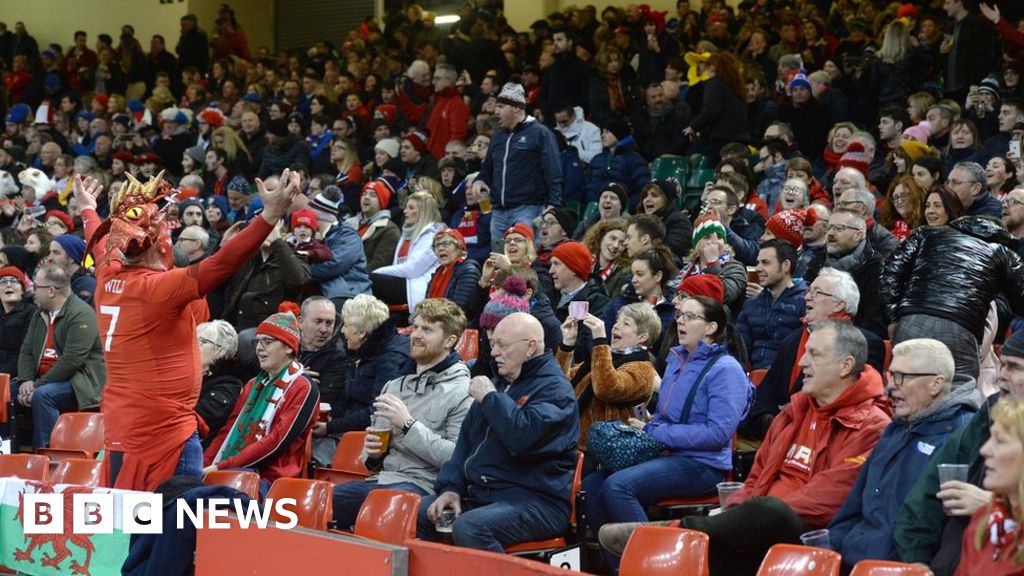
The Six Nations is an "integral part of Welsh culture and identity" and must remain on free-to-air television, the leader of Plaid Cymru said.
Wales' home games are shown by BBC with the tournament shared with ITV.
The deal ends in 2021 and reports emerged on Sunday that rights could be sold to a subscription service.
Adam Price has written to the Secretary of State for Digital, Culture, Media and Sport (DCMS) asking for it to be protected on terrestrial television.
"Both the Six Nations and the game of rugby itself is an integral part of Welsh culture and identity," he said.
"It is bitterly ironic that as we celebrate St David's Day - the patron saint of Wales, and take pride in all the little things that make us proud to be Welsh, we discover that we may soon be priced out of our own culture."
Under the Broadcasting Act 1996, a series of "Group A" sporting events were listed which must stay on free-to-air television.
These include the FA Cup Final, the Grand National and the Olympic Games.
Mr Price has written to Secretary of State Oliver Dowden asking him to add the Six Nations to the list.
"This must be applied to all Welsh games because of the particular place of rugby in our national culture," Mr Price added.
"We stand firm in our belief that Welsh rugby is not for sale and that it belongs to everyone in Wales."
He said up to 82% of the television audience on match day watch Six Nations games.
Mr Price said: "For these iconic games to move beyond a paywall would be nothing short of disastrous for rugby in Wales.
"There are many in Wales who cannot afford satellite television and watching the games in a pub is not always accessible to everyone."
Negotiations over a new television deal have been taking place and Mr Price's concern follows similar letters written by Welsh Labour MPs and AMs.
They wrote separate letters to the Welsh Rugby Union last month asking it to "strongly resist any moves to place the matches behind paywalls".
A BBC spokesman said: "Whilst we wouldn't comment on the specifics of an ongoing rights negotiation, terrestrial channels have brought unprecedented viewing figures to the Six Nations, ensuring that rugby remains a sport that is very much relevant and enjoyed by as wide an audience as possible and we very much hope that will continue."
A DCMS spokeswoman said: "Our listed events regime strikes a balance between retaining free-to-air sports events for the public while allowing rights holders to negotiate agreements in the best interests of their sport.
"Negotiations on television rights are a matter for the sports authorities and broadcasters."
Analysis by Huw Thomas, BBC Wales arts and media correspondent
When broadcasters were recently invited to bid for the rights to show the Six Nations, the tender document took the BBC and ITV by surprise.
It appeared to rule out a joint bid, the format which had previously allowed the two broadcasters to pool their funds in order to keep the competition on free-to-air TV.
I understand the BBC and ITV are still likely to attempt to strike a joint deal this time, regardless of the initial impression that it would break the rules.
But the rugby unions are said to be keen to increase the value of the deal, and will be hoping for significantly more than the approximately £65m per annum that the Six Nations TV deal secured last time.
If a pay TV channel is prepared to spend much more on the rights, it may suit the unions to take the cash.
But a significant price would be paid in the form of the TV audience, which would fall dramatically for any game played behind a paywall.















 Phone: (800) 737. 6040
Phone: (800) 737. 6040 Fax: (800) 825 5558
Fax: (800) 825 5558 Website:
Website:  Email:
Email: 






